LGBTI Catholics in West Africa seek compassion, change
Colin Stewart is a 45-year journalism veteran living in Southern…
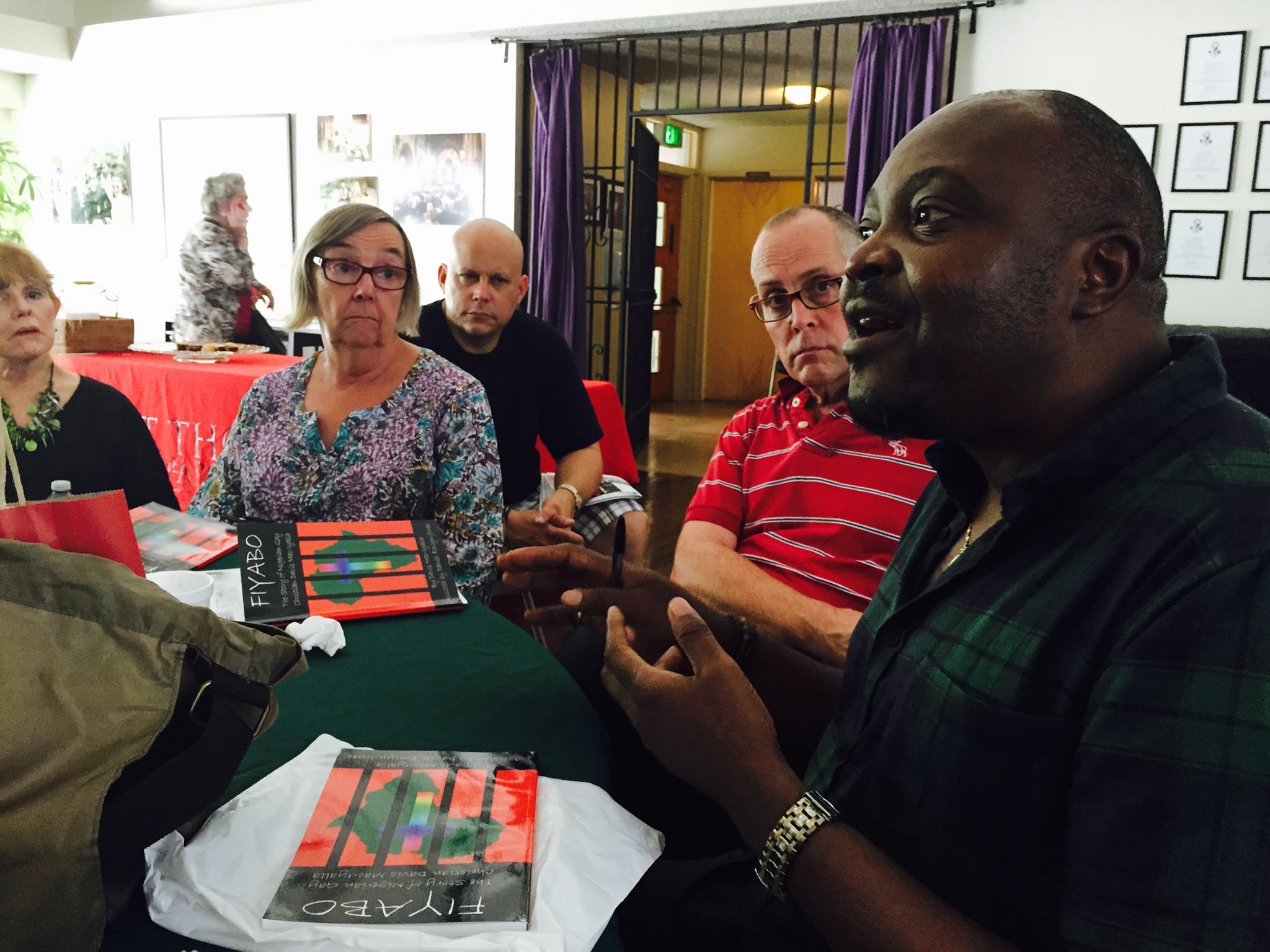
Many LGBTI Catholics in West Africa remain faithful to the church, despite exclusion, homophobia and discrimination, Anglo-Nigerian gay activist Davis Mac-Iyalla reported after a fact-finding trip there. But the church has driven out some of its LGBTI flock, and all of them ask the church to treat them in a more Christian manner.
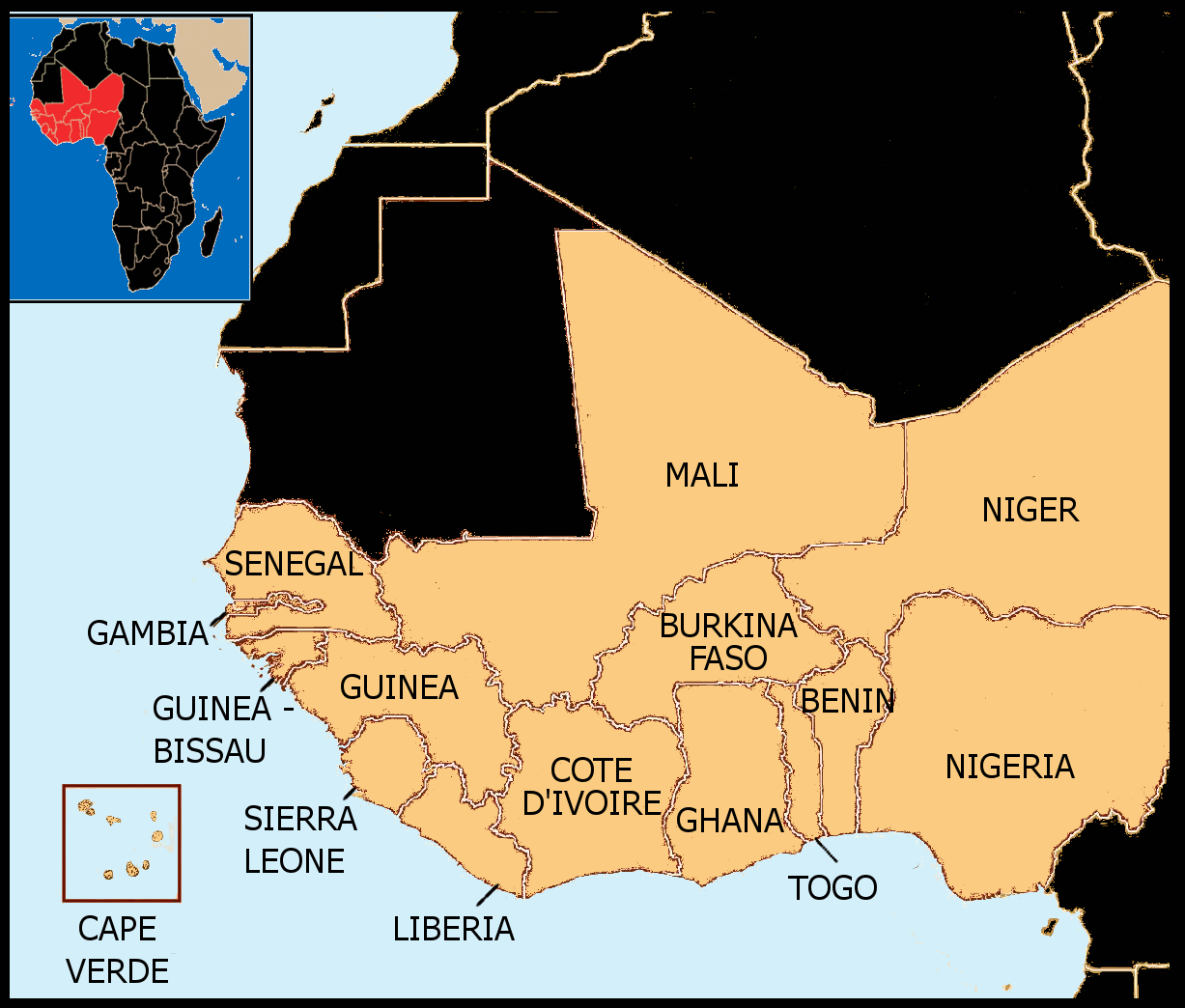
Currently touring California, Mac-Iyalla traveled to West Africa in March on a trip sponsored by the European Forum of LGBT Christian Groups.
Below are excerpts from his report, courtesy of the Washington Blade, with the addition of subheads and italic descriptions of each country’s law on same-sex relations:
Voices from LGBT Catholics in Western Africa
Editor’s note: This report was commissioned by the European Forum of LGBT Christian Groups being concerned, that the voices of LGBT Christians from Western Africa were not well heard in the ongoing discussion about the Family Synod of the Roman Catholic Church. It presents current experiences of LGBT Catholics living in the region and their opinions on the Family Synod. The findings are based on interviews conducted by Davis Mac-Iyalla with Catholic LGBT people in Ghana, Togo, Benin and Nigeria held from 14−31 March 2015.
By Davis Mac-Iyalla
Ghana
Lesbian prayer and support group keeps low profile
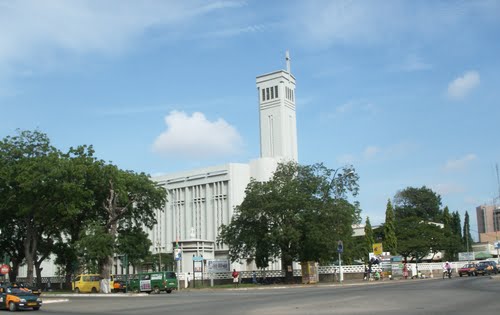
… Rosebud, a Christian, lesbian and midwife who works for the government hospital, leads an informal group of Catholic lesbians. It started among fellow lesbians at her church, but women from other churches are discovering her group. She currently has members from the Anglican, Presbyterian as well Pentecostal churches. Although the group is based in Accra, it is growing to be Ghana wide. They have not given the group a name, but come together once a month to pray and listen to each others’ stories. With little support from their churches on the issues that their sexuality raises in society, the group has become their only means of support as they discuss and help each other on LGBT issues. They organize parties and social events, but have to be very discreet, so as not to incur the wrath of the authorities.
Rosebud thinks that in a homophobic society, “the churches should be the first places to welcome LGBT people, not persecute them.” She commented that lesbians cannot immediately identify each other, “people usually become friends first, and then when it is appropriate, a friend will ‘come out.’ ” …
Rosebud has a son who is 14-years old. She has brought him up a Catholic and feels strongly that the church should see her and her son as a normal family, despite the fact she is a lesbian.
“I know that God loves me. If I was standing face to face with any of the bishops who preach discrimination against LGBT people, I would look them in the eyes and tell them that I did not choose my sexuality.” She believes that God made her gay and trying to change her sexuality is like changing the will of God. …
Charismatic bisexual man seeks action against anti-LGBT blackmailers
Kelly … identifies himself as a Christian Charismatic, bisexual man. Kelly let me record him, and concluded by telling me that he hopes support and education can be given to Ghana’s LGBT community, and particularly education regarding blackmail. Blackmail of LGBT people is on the rise because of an increase in the use of gay dating websites. Sometimes people pretend to be LGBT online, setup a victim and then blackmail them for money. With unemployment on the rise, youths in Ghana are being driven to raise money in this manner and sometimes, even LGBT people have raised money in this way. Sometimes the Ghana police have gone undercover to trap and arrest LGBT people in a similar manner. He said that the decriminalization of homosexuality would be the best way forward to providing safety for LGBT people, but he has no idea how it can be achieved. He also thinks that education in areas of inclusive theology would be useful for the Ghanaian context.
In Ghana, same-sex intimacy is punishable by up to three years in prison.
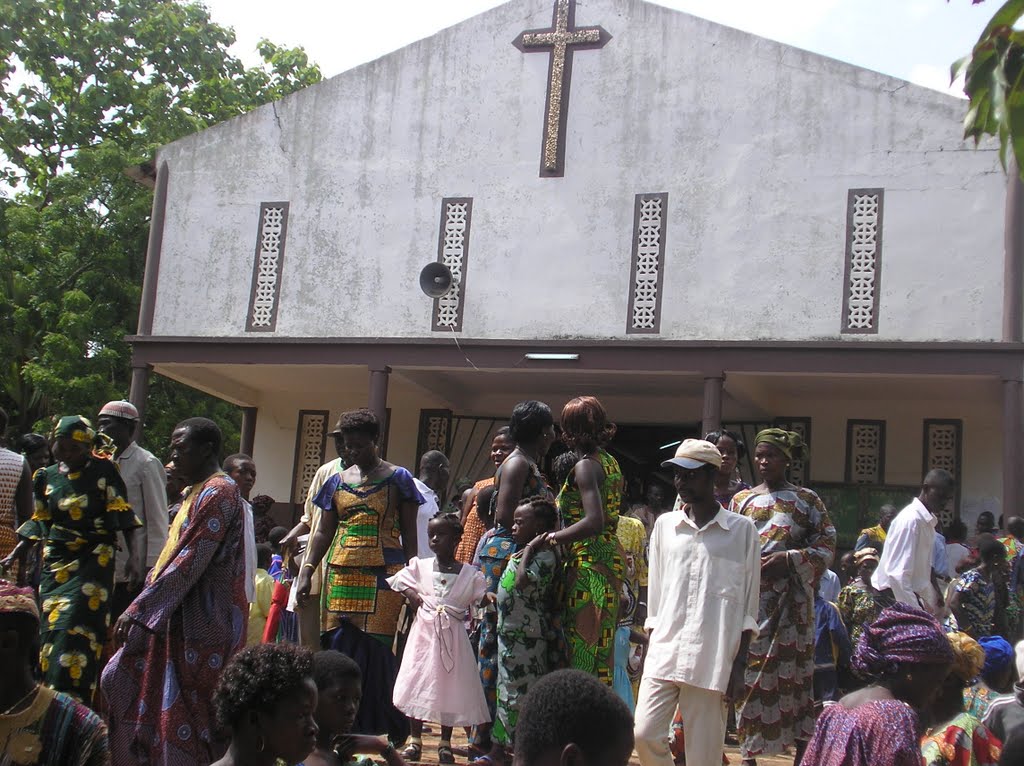
Togo
Arriving in Togo was emotional for me, as this is a place I lived for many years, a place where I experienced much joy and also much sorrow. After settling into a guesthouse, I went to see the place where I was attacked in 2008. It had changed a lot.
Lomé, the capital of Togo, is a lively city, but the police there are particularly merciless when dealing with LGBT locals and tourists, especially during the recent period of presidential elections. However, the law against homosexuality is not very clear, although homosexuality can be punishable by 3−5 years in prison. Harassment and blackmail are on the rise.
LGBT community made into scapegoat for rapes
[A report from] Sheba, 23, a Christian and a lesbian currently studying law in Lomé. There has been an increase in reports of men raping underage boys. These men are labelled gay, and the LGBT community become scapegoats for these crimes. Accusations of rape accompanied by blackmail are a common means of extorting money from rich locals and foreign tourists. Most LGBT people in Togo live in fear because they don’t want to be disowned by their family, so they go underground. In Togo, LGBT people are called by the abusive term “adowe.”Sadly, the biggest threat to the Togo LGBT community is the church and religious leaders. The Catholic Church is very powerful there, strongly influencing moral, political and other issues. Specifically the Catholic Church and its bishops are highly regarded by people of the country. She reflects that bishops and religious leaders in Togo frequently come on air to blame any mishap or natural disaster that happens in the country on homosexuals. Therefore, she would appreciate support and work with the LGBT community in the area of lobbying at the wider international/church level.
Bisexual Catholic driven away from the church
This anti-LGBT stance drives Catholics away from the Church.
Edenedi, a bisexual woman who was baptized and brought up Catholic, is now worshiping in the charismatic faith. She feels she can no longer go to church on Sunday, sit down and listen to unchristian preaching about LGBT people. Despite this she still identifies herself as Catholic.
Because of her work as an activist, she is sometimes invited as a guest on radio or TV shows. When a priest or pastor is a fellow guest, they always say negative things against LGBT people such as “homosexuality is not the will of God” and “those that indulge in it are living a sinful life.” It upsets her as a Christian to hear such things coming from the mouths of people who should be representing the loving embrace of Christ.
Prison chaplains deny communion to LGBT inmates
LGBT people in prison face appalling discrimination. There are reports of rapes by fellow prisoners, and LGBT prisoners do not have access to treatment for HIV and AIDS. Prison chaplains have refused to administer communion to LGBT people in prison services, asking them to repent of their sin of being homosexual. Edenedi is presently negotiating with the prison authorities to allow LGBT prisoners access to condoms; she said they are refused because the authorities say LGBT people should not be having sex. Because of these problems, training of activists who will act as Christian counsellors, visiting prisons and supporting the community, is needed. “Christian literature in French, which talks of an inclusive family and church, would be greatly appreciated here in Togo.”
Gay activist sticks to Catholic Church to deny his oppressors a victory
Aziable is a well-known, prominent gay Catholic activist from Atapkame. Until recently, he was a knight of the church. Knighthood is an honour and invested upon those that the Bishop feels are actively contributing to the life of the diocese. Knights are charged by the church to utilize their potential for mission and evangelism. However, Aziable was dismissed from his knighthood once his sexuality became known. “I will never leave the church because doing so is giving victory to my oppressors,” he emotionally states. He feels that church leaders need help and education to understand properly the gospel that they are claiming to represent.
Under the Penal Code of Togo, “Impudent acts or crimes against the nature with an individual of the same sex are punished with imprisonment from one to three years ….”
Benin
Disowned transsexuals worry about hellfire, exclusion from cemetery
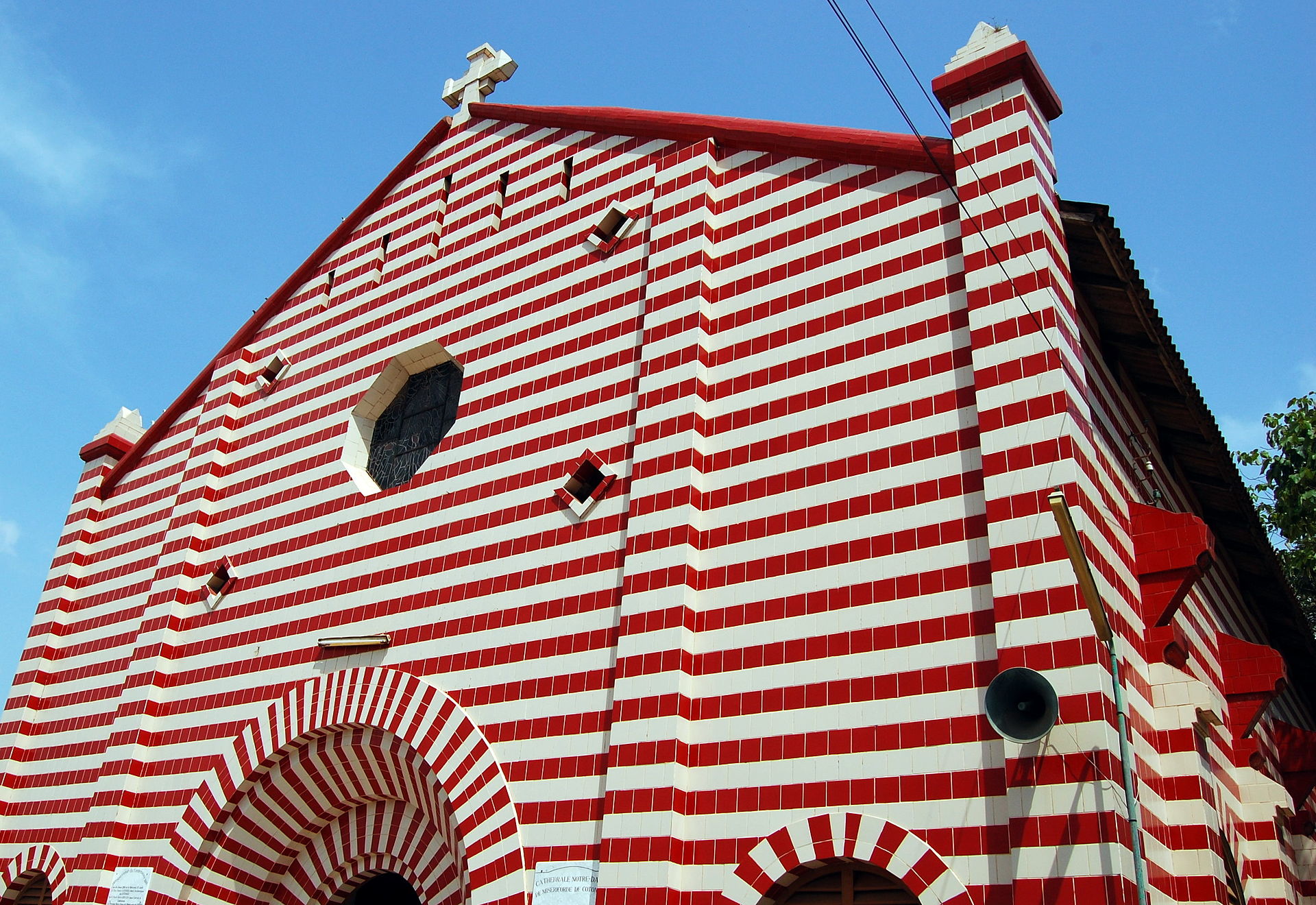
In Benin, I met with three people who identify as transsexuals and are also Christians from different backgrounds. They wanted to be interviewed together. Their words were heartfelt as they told me that all they wanted from the society and the church is acceptance. Benin does not have any anti-gay laws, but LGBT people are often disowned by their families if their sexuality becomes known. People who are known to be LGBT are seldom employed.
The three explained that the Catholic Church, which is the dominant faith in the country and holds great power, influences social attitudes and fuels homophobic prejudice. The thing, which saddened me the most, was to hear that if a known homosexual dies, he or she is buried in a different cemetery from everyone else, a place where outcasts are buried. Marginalized and hated in life, marginalized and hated in death. The three interviewees wept as they spoke.
One of them named Abib asked me to be honest in my reply and to tell them that if they died would they go to hell or heaven? “Priests say that transsexuals are demons in the kingdom of the devil.” This was very shocking for me to hear. In my years living in Nigeria and Togo I have heard much homophobia, and know well the negative attitudes of church and society towards gay people, but this priest’s words still shocked me. At this point I stopped interviewing them and spent the rest of our time together teaching and reassuring them of the unconditional love of Christ, and telling them that all baptized members of the church regardless of their sexuality, sex or gender identity are welcomed into the Kingdom of God.
No help from church for mother who loves her gay son
Mary is a parent of a 21-year-old gay man living in Porto Novo. She is a practicing Catholic and told me that she knew that her son was different right from the age of 12. “He always wanted to play with girls and never with boys, loved wearing girl’s clothes and often told me he was a girl.” Initially Mary was worried about his behavior and consulted her priest who advised her to give him time to grow up, but continue to pray for her son. She once was told by a fellow parishioner that her son’s female behavior was because of a lack of a father figure in his life. This was so offensive to Mary that she reported it to her priest, but nothing happened as the priest agreed with what the parishioner had said. She feels angry about the attitudes of the church towards homosexuals and single parents. “I love my church and my country, but I love my child more and I will do everything to protect him.”
‘Always Catholic, always homosexual’
Many LGBT people fear that their family will disown them if their sexuality was ever known. Many are subjected to pressure from their parents to get married and have children especially if they are the firstborn son. Dossou, a 39-year-old travel agent, is so concerned about this that he is currently trying to get a job in Nigeria where nobody knows him. He understands that Nigeria is also a difficult place to live if you are homosexual, but is not planning to come out any time soon. “I want to stay in Nigeria, improve my English and then find a way to travel to Europe where I can be free to be myself.” He feels that the church, which is supposed to be a place of hope, has taken the lead in discriminating against people like him. He ends by saying, “I will always be a Catholic, just as I will always be a homosexual. I know that I am loved by God.”
As Mac-Iyalla’s report notes, much of Benin is homophobic, but the country does not have a law against same-sex relations.
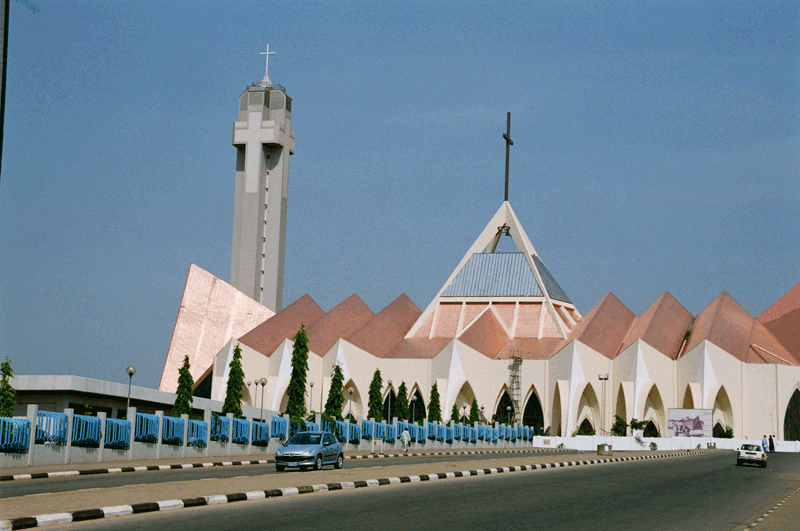
Nigeria
My next journey was to Nigeria, and I had to be extremely careful at this stage of my journey for my own safety and security. It was not easy crossing the border of Benin and Nigeria since the Nigerian presidential election was coming up in few days time, so security was very high. I had wished to visit northern, southern and eastern Nigeria but could only visit Lagos, which is in the southwest. However I did meet and speak to people from all regions of the country as Lagos is the most diverse cultural city of Nigeria.

In Nigeria, the church and the government both persecute LGBT people. On the 7th of January 2014 the Nigerian president, Goodluck Jonathan, signed The Same Sex Marriage (Prohibition) Act into law. This act imposes lengthy prison sentences of up to 14 years on any person who attempts to enter into a same-sex marriage or civil union; who participates in a gay club, society or organization; or who makes a public display of affection with a person of the same sex.
Fearing that God would burn him alive when he dared step up to the altar
Rashidi is a trained science laboratory technician and an unapologetic human rights advocate especially for persons marginalized on grounds of sexual orientation and gender identity. He was brought up as Catholic. The strict observance of religion and faith in his family led him to begin to study the Bible at an early age, but the experiences and realization of his sexuality made him more questioning of the scriptures. As a young man, he was scared he was going to be consumed by fire whenever he stepped up to the altar. He feared that his homosexuality would be revealed to the church and he would become an object of mockery amongst his peers. He remarked, “Many homosexuals within the church in Nigeria still have those same feelings and are scared about people finding the truth of who they are.”
Rashidi expressed his anger over the Same Sex Marriage Act. Many LGBT Catholics in Nigeria were very disappointed to read in the press that The Catholic Bishops Conference of Nigeria made statements in support of the bill saying that the law was a “step in the right direction for the protection of the dignity of the human person.” Rashidi angrily commented:
“I cannot understand how the church could support the persecutions of LGBT Nigerians and still call itself Christian.”
There had been an increase in violent attacks against Nigerian LGBT people since the bill was signed into law. Painful for him is the lack of pastoral care and support from the Nigerian Catholic Church towards its LGBT members. While the bishop pays ‘lip-service’ to human rights and equality, the Catholic Church does not seem to put these ideals into practice.
Rashidi followed the Catholic Family Synod through the international media. “Why the Catholic Church can’t be more like Christ to give everyone a place, I do not know,” he muses. He hopes to see the Nigerian Catholic Church becoming more open and welcoming to everyone. While the priests and bishops in Nigeria are publicly opposing homosexuality, he asks, “Does this mean that there are no homosexual priests or bishops in the Catholic Church of Nigeria, or are they just too afraid to accept themselves and speak out the truth which is first and foremost their calling?” He would love to see brothers and sisters from Europe and other parts of the world visiting Nigeria, sharing their stories and supporting the LGBT of Nigeria in their journey of faith. “What is needed most in Nigeria is material that teaches liberation theology,” he concludes.
Closeted lesbian became more careful after anti-gay police sting operation
I also met Grace, a lesbian from Ojota. She is a Christian who discovered that she is a lesbian at a very young age. She is currently unemployed but does lots of voluntary work to support the LGBT community in Lagos. She is still very much in the closet but friends and family members often comment on how she dresses like a boy and behaves like a man. Her mother constantly reminds her that a woman’s place is under her husband and says she is praying for Grace to find a good husband.
Since the passing of the anti-gay law in January 2014, Grace has become more careful. She recounts a story about an undercover policewoman who joined an online dating group to trap unsuspecting gay women. The policewoman met a female doctor who she subsequently reported to the authorities. The doctor lost her job and was forced to relocate outside of Nigeria.
“Many people are using the anti-gay law to blackmail people for money,” Grace explains. In her eyes, Nigeria is a mob country where people are violently persecuted for being homosexual. She said, “I believe [LBGTIs] are one family and I hope that the worldwide Catholic Church and all Christians will come to realise this truth too.”
For many LBGTI persons, the only source of information is the press, which, on most occasions, condemns homosexuality. This can lead to a feeling of self-loathing, an inferiority complex and often a feeling of inadequacy in LGBTs. The condemnation of homosexuality by state and churches as well as the fear of being outed force LGBTs to hide their real sexual identity for a long time. Cynthia was one such person.
The acceptance of herself only started when she found an online-group for same gender loving women. Through this group of lesbians, she became aware that love is natural and the greatest commandment of Jesus Christ. She feels that most LGBT Nigerians don’t know the full component of the anti-gay law. “The damaging effects of the anti-gay law are ‘crazy’: gay bashing, suicide, blackmail, rape and more is on the increase against Nigerian LGBT people since that law came into effect,” she explains. Cynthia wishes there was one bishop in Nigeria who was bold enough to stand up and challenge the church and government on their views and attitudes to homosexuality.
Cynthia explains, “I am born and raised Nigerian, if there is anything Nigeria needs it is answers to why a nation so blessed with natural minerals resources, is lacking and dying in poverty. What Nigeria needs is good roads, steady electricity supply, good healthcare and good social services. The problem for the ordinary Nigerian is how to have a daily meal.” In her eyes, the only people who are asking for anti-gay laws are politicians and religious leaders who are using LGBT Nigerians as a scapegoat for the problems in the country.
She asked to help drive education within the Nigerian LGBT Christian communities. This education should cut across spirituality, self and career development, and include legal and human rights. She wants LGBT Catholics from all over the world to keep close ties with the Nigeria LGBT Christians communities.
In a law enacted in early 2014, Nigeria prohibits same-sex marriages, denies the right of association and advocacy to gay Nigerians, and provides for 10 years in prison for any “public show of same-sex amorous relationship.”
Conclusions
From the many interviews conducted, it has become clear that LGBT people in West Africa have a hard life. They are openly persecuted both by the state and the church and feel abandoned. It is sad to say that many LGBTs are “marginalized and hated in life and marginalized and hated in death.”
They fear to be excluded and disowned by their families when they come out. Unemployment and blackmailing are often mentioned problems, which turn sexual orientation into a cause for economic losses and poverty.
The anti-gay laws in these countries prevent constructive dialogue between the state, church and LGBTs. These laws are used as ammunition to justify persecution and the refusal of pastoral care and support by religious and community leaders. This isolates LGBTs and propagates fear, hatred and even violence against the LGBT community.
The Catholic Church in West Africa has not initiated the family debate in their churches and parishes. Church leaders are disconnected from reality about their LGBT members. In turn the LGBT members are ignorant of what is going on at the higher level of the Catholic Church both in their own countries and internationally.
Despite all of this, Catholic LGBT’s do not want to walk away from the Catholic Church. They want to be accepted, to be welcomed by the church, to have dialogue, and education. Above all, they want equality both in their personal lives and in their church to live in a nurturing environment not one of condemnation. They want to participate in the Family Synod discussions. They want to have a voice, to tell their stories, to relate their situations and to let the world know of their plight and their fight.
Related articles
- Voices from LGBT Catholics in Western Africa (August 2015, Washington Blade)
- LGBT Catholics Find Little Encouragement in Family Synod Document (June 2015, The Advocate)
- LGBT Nigerian: ‘Religious leaders have abandoned us’ (January 2014, 76crimes.com)
- More articles about Davis Mac-Iyalla
- Archive of this blog’s coverage of Nigeria
- Archive of this blog’s coverage of Ghana
- Archive of this blog’s coverage of Togo
- Archive of this blog’s coverage of Benin



Reblogged this on Fairy JerBear's Queer World News, Views & More From The City Different – Santa Fe, NM and commented:
Reporting on LGBTQIA Catholics in Nigeriamy Ghana, Togo and Benin…